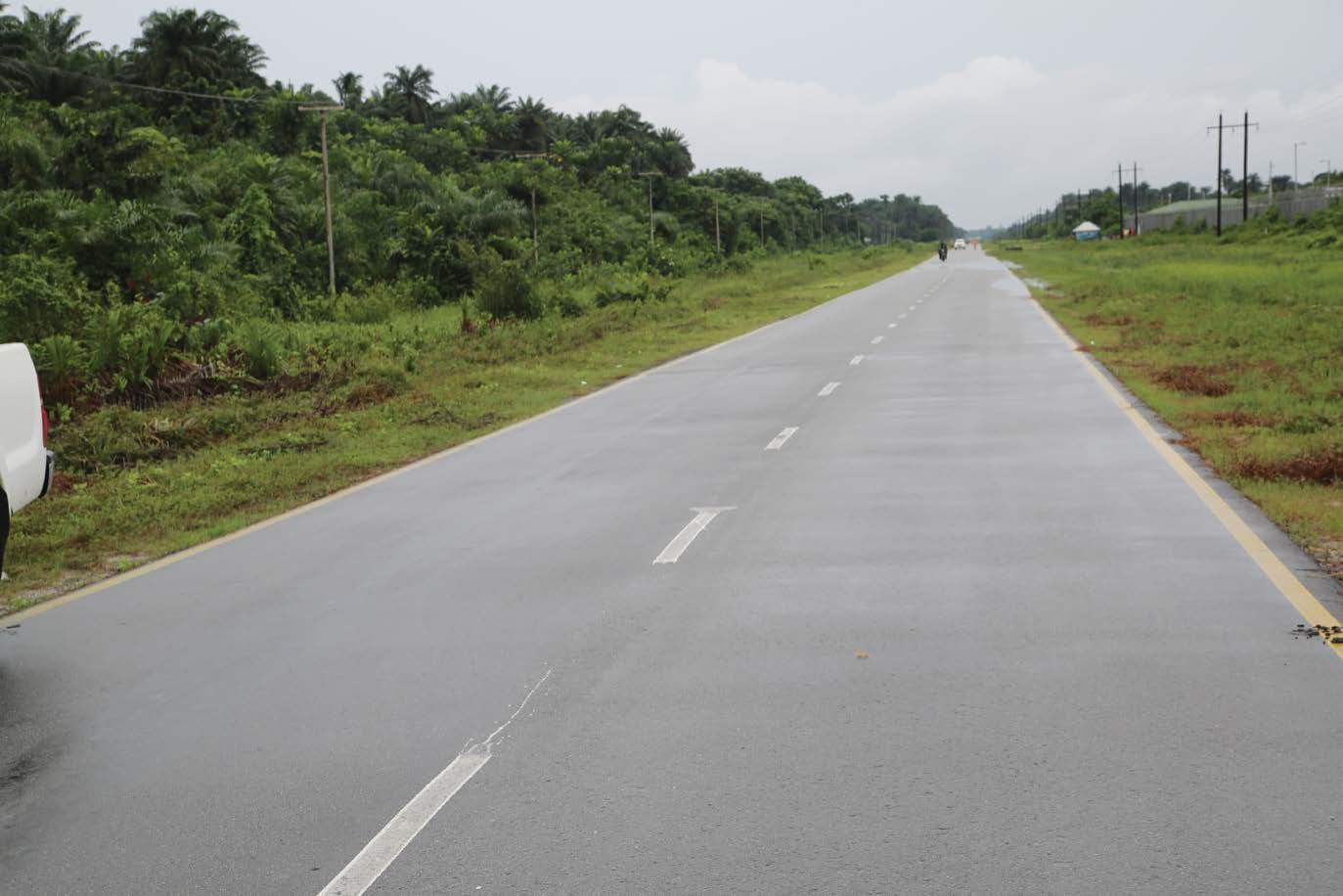

THE LEGACY OF ROADS AND DRAINS
Today, the road landscape and urban outlook of Delta State has changed for the better. The evidence is live and self-commending. The array of paved roads across the state can be felt and seen by Deltans as well as commuters from other states. This unparalleled feat has not come by chance, but by deliberate planning, effective implementation and close supervision, which are the hallmarks of Okowanomics. The legacy of road networks and urban renewal is the direct result of Governor Okowa’s early and consistent prioritization of the construction and rehabilitation of road networks since 2015.
The development of road networks across the state is in sync with development economics principle that road infrastructure is fundamental to economic and social progress. Recent statistics show that from 2015 to date, the total length of roads constructed and rehabilitated throughout the state is 1,932.14 km while the total length of drains constructed and rehabilitated throughout the state is 1,035.95 km. This impressive stock of roads and drains has been achieved under various mandate Ministries, Departments and Agencies as shown in the following table.
Construction & Rehabilitation of Roads and Drains from 2015 to 2022
THE NEW OUTLOOK OF URBAN AREAS
The urban renewal agenda of Okowanomics combines good road networks, proper environmental sanitation, orderliness of vehicular and human traffic, planned development of housing and marketplaces. Most towns and cities in the state are today linked by paved roads thereby ensuring efficient and smooth transport of persons, goods and services from one location to another. The state has recorded phenomenal growth of the services sector – tourism, hotels, entertainment, food and beverages, supermarkets, real estate, etc. Delta State, particularly Asaba, the capital city, is now a regular host to national and international events including sports festivals, professional conferences, international meetings, national summits and colloquia.
There is now a network of passable paved roads with drains in and around Asaba capital. The construction of storm drainage works to solve the perennial flash floods in Asaba and Warri has addressed age-long ecological and environmental threats to sustainable urban living. By standardizing Asaba International Airport and concessioning it to a private operator, Delta State is now open to national and international business and tourism. In addition, the progressive capital development and sustainable professional management of the airport are assured into the future. The almost-completed Ughelli-Asaba highway will ease road travel to and-from the ends of the state. The delineation and construction of roadside stopover shopping booths has improved orderliness of traffic and enhanced serenity in Asaba. The greening, beautification and regular cleaning of major roads in Asaba capital has also improved the urban environmental landscape.
Another important urban renewal element is the delineation and development of new locations for exclusive use by business clusters, for example, the automobile maintenance and repair workshop centre in Asaba, and the upcoming Umunede Rest Park and Warri Trailer Park. The renovation of dilapidated urban marketplaces, relocation of obstructive market structures and creation of new market infrastructure have eased urban congestion, reduced traffic disorder and improved the physical environment for selling and buying in urban and semi-urban areas. Evidence of market renovation/upgrading abound in Orerokpe market, Owa-Alero market, Bomadi market, Ubulu-Uku market, Igbodo market, Isiokolo market, Owanta market, and Oghara
market.
BOOST OF THE SERVICES SECTOR
In line with standard economic logic, there is a direct link between improvement of road networks and the growth of the services sector. Improved road network brings about smooth and less costly movement of goods and services which translates to ease of doing business. The result is more efficient business transactions, greater volume of businesses per time and better business confidence. The boost of the services sector arising from improved road networks is evidenced by the fact that the services sector increased from 18.77% of 2013 GDP to 29.73% of 2020 GDP.
This trend is substantiated by the fact that the services subsectors are the highest performing in terms of accelerated growth rates from 2019 to date, as follows: accommodation and food services 59.69%, arts, recreation and entertainment 17.10%, trade 16.81%, construction 12.33% and transportation and storage 11.97%. Business activities in the real estate sector (land and housing) have accelerated on account of the opening-up and improved accessibility of towns and peri-urban communities. This is evidenced by the increased demand for registration of building plans in Asaba Capital Territory and other parts of the state.
